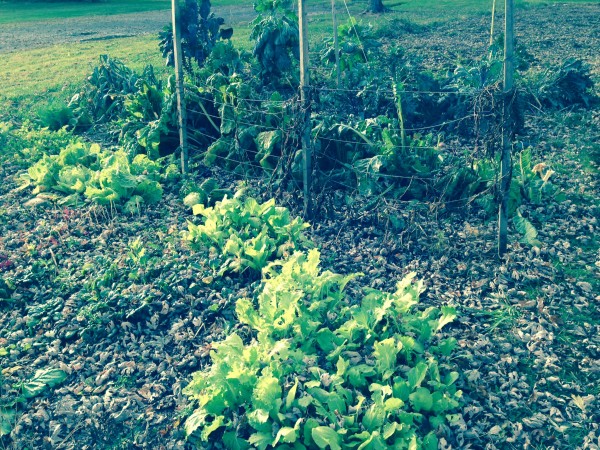-

Erin Donahue -

Christina Barkanic -

Brittany Trott -

Emily Wiley -

Jessica Reilley -

Chris Raines -

Will Nichols -

Emily Reddy -

Michele Marchetti -

Michele Frank -

James Gherardi -

Kit Henshaw -

Christina and Erin -

Kim Tait -

Erin McKinney -

Steve Spanelli -

Sam Komlenic -

Katherine Taylor Grofic -

James Eisenstein -

Jamie Oberdick -

Anna Lombardo -

LacCreta Holland -

Tony Ricci -

Local Food Journey -

Laura Young -

Kristin Camplese -

Harrison's Fresh + Local -

Danielle Matalonis -

Kristine A. -

Linda Weaver -

Naomi Elle Schwartz -

Dana Stuchul -

Cara McShane -

Brittany Smith -

Jessica Illuzzi - Frosty
-

Jessica Paholsky -

James Sechrengost -

Brad Yeckley -

Maya Althouse -

Jordan Reabold -

Kim Chase -

Maria Bryant - Alexandrea Scott
The joy of fall gardening
Posted by Jamie Oberdick on 09/27, 2016 at 08:43 AM

If you are like me, you are a gardener who doesn’t think of gardening as a spring-summer thing. Autumn may be to many people a time to rake leaves and watch football, but for gardeners, it’s still time to grow.
There are some advantages to gardening in the autumn. For one, it’s not near as hot, and you’re not limited to mornings and evenings. But there are other reasons to keep on playing in the dirt.
One great reason is flavor of certain types of produce. Before we get our first frost, take a look at what you have left in the garden, and do some research into how cold hardy it is. A lot of your classics of the garden, such as tomatoes, peppers, summer squash, beans, etc. are frost sensitive. Those plants are the ones that look sad (and dead) after the first killing frost. But there are notable exceptions, the cold hardy varieties, that can not only shrug off a frost but actually get better from a frost.
These vegetables improve in flavor mainly due to a reaction in the plant. For members of the brassica family such as brussels sprouts, mustard greens, broccoli, cabbage, etc., the cold causes the plants to produce sugars which can take away any bitterness in these plants, and give them a subtle sweet flavor. Root vegetables such as carrots and parsnips convert starches to sugars after a frost. Leeks also get sweeter after a frost.
Another advantage that fall has over summer for gardening is fewer pests. But don’t let your guard down, as pests such as squash bugs and cutworms seem to flourish in early fall before a hard freeze. Plus, four-legged pests, the ones with antlers (deer), are on the prowl looking to fatten up before winter. If they find your garden, that’ll be that, so be vigilant for signs of deer activity and try one of the many deer repellents out there (both homemade and commercial).
A real chore during the summer, watering, just about goes away in autumn, with a few exceptions. The weather pattern can turn wetter, and because the days are shorter there’s less evaporation caused by the sun.
There are clear signs that winter is approaching, as sunsets come earlier, birds are migrating, and leaves are starting to turn. But don’t let these signs of cold days to come cause you to miss out on what is one of the most pleasurable times of the year to be out in the garden.
![]() Author: Jamie Oberdick
Author: Jamie Oberdick
Bio: Editor, Local Food Journey | Passionate about supporting local food in Central PA
- Our Local Food Journey comes to an end
- Winter isn’t a quiet time at the farm
- Get the taste of garden season right now by growing herbs indoors
- All you need to know about PASA’s Farming for the Future conference









NO COMMENTS